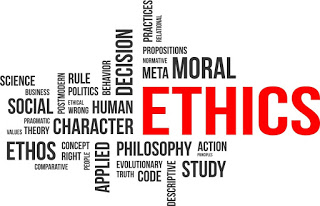Franz, D.J.
J Acad Ethics 20, 359–374 (2022).
https://doi.org/10.1007/s10805-021-09417-1
Abstract
This paper argues that applied ethics can itself be morally problematic. As illustrated by the case of Peter Singer’s criticism of social practice, morally loaded communication by applied ethicists can lead to protests, backlashes, and aggression. By reviewing the psychological literature on self-image, collective identity, and motivated reasoning three categories of morally problematic consequences of ethical criticism by applied ethicists are identified: serious psychological discomfort, moral backfiring, and hostile conflict. The most worrisome is moral backfiring: psychological research suggests that ethical criticism of people’s central moral convictions can reinforce exactly those attitudes. Therefore, applied ethicists unintentionally can contribute to a consolidation of precisely those social circumstances that they condemn to be unethical. Furthermore, I argue that the normative concerns raised in this paper are not dependent on the commitment to one specific paradigm in moral philosophy. Utilitarianism, Aristotelian virtue ethics, and Rawlsian contractarianism all provide sound reasons to take morally problematic consequences of ethical criticism seriously. Only the case of deontological ethics is less clear-cut. Finally, I point out that the issues raised in this paper provide an excellent opportunity for further interdisciplinary collaboration between applied ethics and social sciences. I also propose strategies for communicating ethics effectively.
Here is my summary:
First, ethical criticism can cause serious psychological discomfort. People often have strong emotional attachments to their moral convictions, and being told that their beliefs are wrong can be very upsetting. In some cases, ethical criticism can even lead to anxiety, depression, and other mental health problems.
Second, ethical criticism can lead to moral backfiring. This is when people respond to ethical criticism by doubling down on their existing beliefs. Moral backfiring is thought to be caused by a number of factors, including motivated reasoning and the need to maintain a positive self-image.
Third, ethical criticism can lead to hostile conflict. When people feel threatened by ethical criticism, they may become defensive and aggressive. This can lead to heated arguments, social isolation, and even violence.
Franz argues that these negative consequences are not just hypothetical. He points to a number of real-world examples, such as the backlash against Peter Singer's arguments for vegetarianism.
The author concludes by arguing that applied ethicists should be aware of the ethical dimension of their own work. They should be mindful of the potential for their work to cause harm, and they should take steps to mitigate these risks. For example, applied ethicists should be careful to avoid making personal attacks on those who disagree with them. They should also be willing to engage in respectful dialogue with those who have different moral views.







